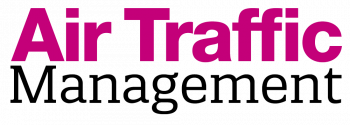The International Civil Aviation Organization (ICAO) and its Member States have adopted a Global Framework for sustainable aviation fuel (SAF), lower carbon aviation fuel (LCAF) and other aviation cleaner energies and agreed to a collective global aspirational Vision to reduce CO2 emissions in international aviation by 5 per cent by 2030 through the use of cleaner fuels.
The Vision is a collective one. Each State will contribute to the Vision within its own national timeframe, informed by its special circumstances and respective capabilities. There is no attribution of specific obligations or commitments in the form of emissions reduction goals to individual States.
The Vision will be continually monitored and periodically reviewed, including through the convening of the Fourth ICAO Conference on Aviation and Alternative Fuels (CAAF/4) no later than 2028, with a view to update the Vision based on market developments in all regions. The agreement was a key conclusion of CAAF/3 held in Dubai, United Arab Emirates, from 20 to 24 November 2023 and attended by over 100 ICAO Member States. 2
Singapore welcomes the adoption of the Global Framework and Vision and will work with ICAO and other Member States to strive towards achieving it. The Civil Aviation Authority of Singapore (CAAS) will take the Global Framework and Vision into consideration in the development of the Singapore Sustainable Air Hub Blueprint which we will publish in the first half of 2024 and submit to ICAO as Singapore’s State Action Plan.
Acting Minister for Transport Mr Chee Hong Tat led the Singapore delegation for CAAF/3, accompanied by officials from the Ministry of Transport and CAAS. Acting Minister Chee delivered a High-Level Statement and participated in a High-Level Panel discussion which helped frame the ensuing discussions on the Global Framework and Vision. In his remarks, Mr Chee called for the global aviation community to adopt measures which are balanced, action-oriented, collaborative and inclusive, so that we make progress on reducing the industry’s carbon emissions while leaving no country behind.
CAAS tabled two working papers at the conference. One paper co-authored with Brazil advocates SAF feedstock and technology neutrality and urges global acceptance of feedstock that meet the criteria set out under ICAO’s Carbon Offsetting and Reduction Scheme for International Aviation (CORSIA). This will help widen potential feedstock supply options, de-risk SAF investments to scale up SAF production and lower costs. Current SAF production levels are still extremely low at only 0.1% of all aviation fuel use. The other paper co-authored with Japan and the United States proposes a possible framework for Aviation Green Lane comprising a set of tangible and credible measures across the airline, air traffic management and airport functions which interested States and airlines can adopt to various degrees to reduce carbon emissions and avoid greenwashing. The two papers received broad-based support at the conference. The co-authors will work with other Member States which have expressed support for the papers to follow up on the recommendations. 3
“The Global Framework and Vision adopted by ICAO at CAAF/3 is an important step forward for the global aviation community to achieve ICAO’s Long-Term Aspirational Goal (LTAG) of net zero emissions by 2050. It signals the industry’s commitment to decarbonisation while recognising the diverse circumstances, resources and capabilities of each State,” said Mr Chee Hong Tat, Acting Minister for Transport. “Singapore will continue to contribute actively towards the ICAO’s goals in collaboration with ICAO, Member States and other stakeholders.”
